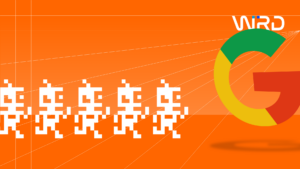Artificial Intelligence (AI) is here, and it’s here to stay. It’s set to change the future of SEO and search in two key ways: the content we see, and how we find what we’re searching for. In our article on AI generated content using Large Language Models (LLMs), we focussed on the former, but with the implementation of Google’s new AI Overview we’re taking a look at the recent changes to Google search tools to see how further changes may be taking place.
Formerly known as the Search Generative Experience (SGE), Google’s AI Overview – unveiled in the UK and US on the 15th of August 2024 – has reportedly been used in 17% of search queries in the UK and US. An overt renaming of the tool suggests that Google is keen to use AI more in the future, as machine learning continues to play a crucial role in personalising search results in both SEO and paid media campaigns to add depth and a conversational tone to search responses.
Ever since Google was created, its intention has been to help the users find what they’re searching for based on intent, and this latest update is no change. Before the unveiling of the AI Overview, this was reflected in the March 2024 update to Google’s spam policies in the way that claims to help users in the way Search Engine Results Pages (SERPs) appear.
“We’re making algorithmic enhancements to our core ranking systems to ensure we surface the most helpful information on the web and reduce unoriginal content in search results.” Elizabeth Tucker (Director of Product Management at Google).
Sound like good news? Well for everyday users it is, but the new AI search tool has signalled some concerns surrounding the future relevance of SEO. With claims ranging that SEO may no longer be as relevant, to SEO beginning to die, it’s hard to see through the variety of perspectives on the topic.
Predictions for the future of organic search
One of the biggest predictions to do with the new AI Overview concern click-through-rate: after all, who’s going to be clicking on a website’s blog post (like this one for example), if the information they need is right in front of them?
It’s therefore likely that with an increase in instant answers, organic clicks may decrease, but this isn’t to say that AI tools will automatically de-rank SEO optimised websites in the future. Technical SEO, the ‘bread and butter’ to do with page speed, optimisation and Core Web Vitals will continue to play a significant role in reaching the prized number one spot. In many ways it’s a continuation of the trends that we covered in Google’s Navboost and Glue updates.
Less emphasis on keywords
As the AI Overview shifts more of the focus towards user intent in search, it’s likely that in the future, SEO done properly will focus on user intent rather than hitting certain keyword targets. A focus on creating content that offers value and is unique (with user intent at its core) is therefore going to be important going forward for SEO’s future.
Introducing new multimedia videos, interactive content, and images will likely play a role in rankings as the focus moves towards user intent-driven results rather than conventional keyword-stuffing. Content will have to be engaging and full of personal flourishes to stand out against AI generated content. With Google stating it won’t penalise content based on who (or what) produced it, it will take content that charms to out-shine AI generated articles.
Google’s E-E-A-T guidelines
Content that ranks in the AI Overview will likely be authoritative in tone, providing contextual answers that prove a company knows what they’re talking about when describing products and services. Whilst the AI Overview is a powerful search tool, it’s not perfect, and is occasionally inclined to some hallucinations that contain interesting culinary advice; namely a not-so-appetising recipe for pizza containing glue and a hearty side of rocks.
I know there might be a bad taste in your mouth now, but if these gaffs tell us anything, it’s that it’s still important to E-E-A-T. These are Google’s quality guidelines launched in 2022, that rewarded experience, expertise, authority and trust. They may well be the way to stand out against responses from the AI Overview that could potentially contain factual inaccuracies as well as questionable menu ideas (check out our blog on limitations of AI & LLMs for some thoughts on this topic).
AI-Powered local search
For commercial searches where the user is trying to find a service or product, it’s also likely that SEO will need to brace for a future where Google’s AI Overview can produce local searches that are more exact than ever. Using more data from users’ location and behaviour patterns, the AI Overview will be able to find results that best match the geographical nature of the search.
Enhancing a Google Business Profile will be important in this respect going forward, and optimising the preciseness of your business for local searches is equally going to stand out in the future.
Conclusion
Although the new AI Overview feature is certain to change things for the future of SEO, it’s important to remember that the industry has constantly been adapting to change. The latest introduction to search may be a big one, but it’s only the latest in a pattern of changes that have been a part of the way the SEO world works since it began.



